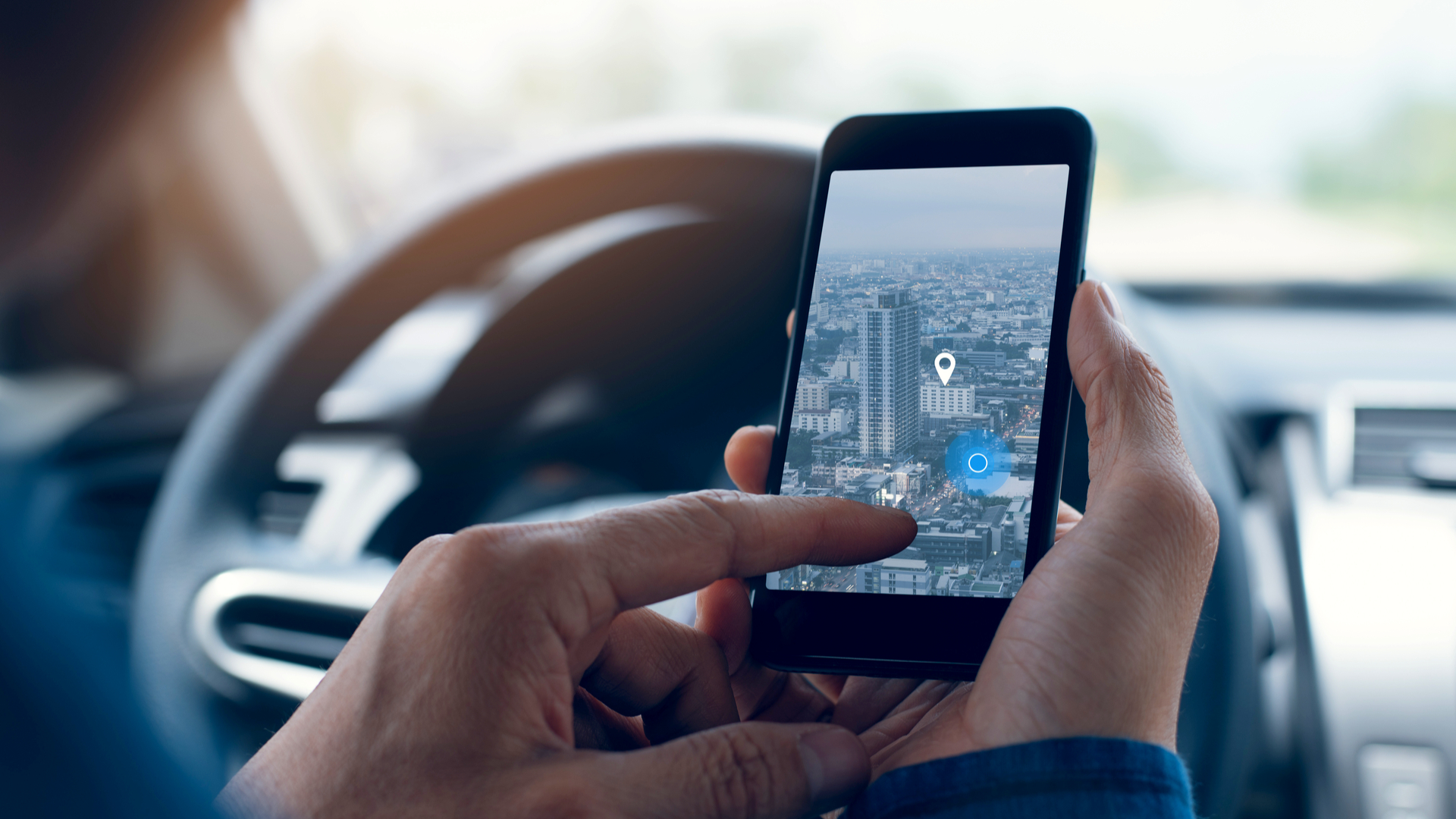Enough is enough: It's time to get us out of this jam
We don't need smart motorways to ease traffic congestion, we need smartphone satnavs


As a guy who took ten years and seven attempts to pass his driving test, I'm arguably not the best-qualified person to lecture on traffic management. But having spent the equivalent of a working day stuck in traffic over the past month alone, I know something needs to be done.
Ironically, part of the reason that I've sat nose-to-tail on motorways recently is because of the installation of a so-called "smart motorway" at the top of the M23, near where I live. The major part of the work is the conversion of the hard shoulder into a fourth lane of traffic. The rest is the installation of new overhead signs, traffic sensors and CCTV cameras that allow the control centre to monitor traffic levels, adjust speed limits to smooth traffic flow and close lanes to allow emergency services to reach all the poor sods who will now break down in four lanes of flowing traffic instead of on the hard shoulder.
It's not all that different from the hardware installed on regular motorways today another application of the word "smart" to make something sound more sophisticated than it actually is.
My real problem with all this isn't the daft branding, however, but that it's fiddling at the edges. Another lane will become just another place to temporarily park cars if there's a smash near Gatwick or a jam on the M25. No amount of tinkering with the road signs or the speed limits is going to prevent almighty tailbacks. We need drivers to be smarter, not motorways.
Now, I'm what you might call a smart car sceptic. Do I believe that smart cars will eventually replace human drivers on the roads? Yes, it's inevitable. Will it happen within the next decade? The next 20 years?
Nope. The concept of smart cars and human-driven vehicles seamlessly mingling on the roads is for the birds. For smart cars to take off, you will need dedicated smart car lanes and proper roadside infrastructure. If it will take the Highways Agency two years to implement two junctions' worth of smart motorway on the M23 then the infrastructure required for nationwide smart cars is decades away. Trust me.
So until our GPS-enabled, self-routing smart cars are able to route around traffic for us, we need to do it ourselves. And the infrastructure to do that already exists. We've got it in our pocket.
Sign up today and you will receive a free copy of our Future Focus 2025 report - the leading guidance on AI, cybersecurity and other IT challenges as per 700+ senior executives
I'm a full-blown fanboy of the Google-owned Waze. Turn off its social-networking nonsense (why would I want to see where other Waze users are on the roads?) and it's a fabulous free satnav that has the best traffic avoidance I've tested. I've even taken to using it on roads and journeys that I know well, because if there's a traffic problem in the area, it knows how to dodge round it better than I do.
How come I started this column bemoaning the fact I've spent hours in traffic, then? Because I've been travelling in vehicles coaches to football matches, friends' cars, taxis that don't use satnavs, or at least not satnavs with live traffic updates. They simply blunder down the "fastest" route, irrespective of the traffic chaos at the time.
Now, I'm not suggesting we mandate satnavs with live traffic updates. But in much the same way that the insurance companies are now offering discounts to people prepared to put one of their black boxes in their cars (and there's a whole different column on that pernicious practice, by the way), why can't the Highways Agency ease congestion by incentivising drivers to use satnavs that will steer them around the traffic hotspots?
Say, for example, that there's a smash on the M1 tonight. Satnavs could almost immediately advise drivers to take alternative A-roads. Those drivers who take the advice and don't end up contributing further to the tailbacks could then be rewarded with 50p off their next road tax bill. That may not be much of an incentive in itself, but if you did that a few dozen times over the course of the year, the savings would add up. And, more importantly, people would get to their destinations much more quickly.
None of this is rocket science. The government already attempts to re-route people around accidents and traffic jams via electronic road signs. But why not have an API accessible to all the satnav developers, free of charge that delivers all of that traffic information direct to people's smartphones? It would mean no more turning up on the M25 at 10pm to find that the junction's been shut for roadworks, for instance.
All it requires is a bit of forward thinking. Jeremy Corbyn has talked about re-nationalising the railways, but that's 20th-century thinking. Nationalise the satnav, if you have to but do something that's going to make a difference in 2019, not 1979.
Barry Collins is an experienced IT journalist who specialises in Windows, Mac, broadband and more. He's a former editor of PC Pro magazine, and has contributed to many national newspapers, magazines and websites in a career that has spanned over 20 years. You may have seen Barry as a tech pundit on television and radio, including BBC Newsnight, the Chris Evans Show and ITN News at Ten.


